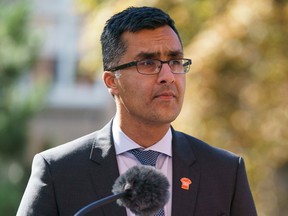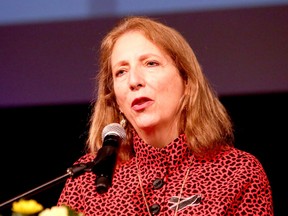
Article content
Most are reluctant to speak publicly about the financial uncertainty they face right now, but behind closed doors many Ontario hospital officials are desperate, Opposition health critics say.
“Many of them are concerned about how they are supposed to continue operations and respond at a time when they are facing unprecedented pressure,” said Dr. Adil Shamji, a critic for the Ontario Liberal health group.
Advertisement 2
Article content
Article content
Shamji said he had heard of hospitals considering limiting surgeries amid financial insecurity and pressure from emergency departments and hospital overcrowding.
“At a time when the pressures on our emergency departments and our patient care are at their highest, hospitals need funding to be able to respond and serve our communities. “The big risk is that they don’t have the capacity or the funding to do it, and at the end of the day, lives are at stake.”

He said the province’s willingness to let hospitals “hang by a thread” was a damning criticism of its risk management and signaled its satisfaction with the status quo.
“The almost universal situation of hospitals in short supply in our province is frankly unprecedented,” Shamji said.
This newspaper has reported that the vast majority of Ontario’s 140 hospitals are projecting deficits this year. Additionally, some have taken out high-interest loans to keep going and others have had to dip into reserves earmarked for specific projects.
The Ontario government has issued special exemptions to most hospitals, allowing them to endure deficits, the Ontario Hospital Association says. Under normal circumstances, the province’s hospitals must balance their budgets and these exemptions are rarely used.
Advertisement 3
Article content
“I’ve never seen it this bad,” said France Gélinas, a health critic in the Official Opposition NDP.
“Many CEOs called me directly and had long conversations about how desperate they are, as are their boards,” he said.
The situation is particularly dire in the North and among rural hospitals, which increasingly rely on agency nurses to stay open, costing the hospital significantly more than they pay regular staff.

In some places in the North, nursing agency representatives sit in the parking lot and recruit nurses when they come off their shifts at the hospital.
“The next day the nurse arrives with double the salary. She is the same nurse who has been there for 10 years and now she does not have to work night or weekend shifts and she can choose her shifts,” Gélinas said.
It then becomes more difficult to fill those shifts and nursing agencies charge hospitals a premium to hire temporary nurses to do so, exacerbating the hospital’s financial strain, she said.
Gélinas has introduced a bill that calls for the regulation of private nursing agencies.
A key issue for all hospitals is that the Ontario government has not fully reimbursed hospital staff for retroactive payments covered by Pay Restraint Bill 124, which was ruled unconstitutional by the courts.
Advertisement 4
Article content
Last month, the Ontario Hospital Association wrote to provincial officials urging them to fully reimburse hospitals for retroactive payments, but OHA also said the growing financial problems facing the province’s hospitals go beyond those payments and They reflect years of underfunding. Ontario has the fewest hospital beds per population among Canadian provinces and the lowest rate among countries tracked by the Organization for Economic Co-operation and Development (OECD).
The halt to pandemic-related special funding last year, even as Ontario is experiencing one of its largest pandemic waves, has added more stress to hospitals. OHA President and CEO Anthony Dale said he thought COVID-19 should remain a “fixed cost” for hospitals for the foreseeable future.
Shamji said he wanted the provincial government to provide funding for back pay, restore pandemic funding and regulate temporary nursing agencies.
He also noted that performance in emergency departments across the province was directly linked to “inadequate funding.”
Gélinas also fears for the safety of patients, given the current situation.
“The largest file of the provincial government is the health file and the largest health file is the hospitals. “I can’t believe we ended up here in Ontario,” Gélinas said. “It should not be like that. And I have no doubt that people’s lives and health will be affected.”
Ontario’s Ministry of Health did not respond to requests for comment.
Article content
